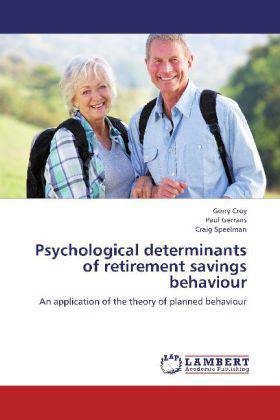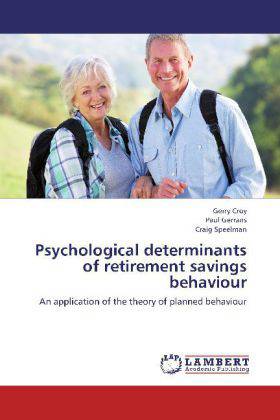
Je cadeautjes zeker op tijd in huis hebben voor de feestdagen? Kom langs in onze winkels en vind het perfecte geschenk!
- Afhalen na 1 uur in een winkel met voorraad
- Gratis thuislevering in België vanaf € 30
- Ruim aanbod met 7 miljoen producten
Je cadeautjes zeker op tijd in huis hebben voor de feestdagen? Kom langs in onze winkels en vind het perfecte geschenk!
- Afhalen na 1 uur in een winkel met voorraad
- Gratis thuislevering in België vanaf € 30
- Ruim aanbod met 7 miljoen producten
Zoeken
Psychological determinants of retirement savings behaviour
An application of the theory of planned behaviour
Gerry Croy, Paul Gerrans, Craig Speelman
Paperback | Engels
€ 103,45
+ 206 punten
Omschrijving
The rate at which many individuals presently save falls short of that which will enable them to achieve their lifestyle aspirations in retirement. This, combined with the social-support funding demands of an ageing population, makes the subject of retirement savings one of crucial importance to most countries worldwide. An obvious approach to improving the quality of life in retirement and to alleviating the forecast social-support burden is to induce people to save in a more effective manner. However, it is generally regarded that a good deal needs to be done to motivate people to save more and to invest more efficiently for their retirement needs. Using the framework of the theory of planned behaviour, the present research explored an extended range of psychological determinants in order to explain retirement savings behaviours within an Australian context and to test the sufficiency of the standard theoretical model for this purpose. The intent of the research was to identify the relative importance of key behavioural determinants and to relate these to intervention possibilities applied to the individual, the workplace and the general public.
Specificaties
Betrokkenen
- Auteur(s):
- Uitgeverij:
Inhoud
- Aantal bladzijden:
- 408
- Taal:
- Engels
Eigenschappen
- Productcode (EAN):
- 9783845405223
- Verschijningsdatum:
- 6/12/2012
- Uitvoering:
- Paperback
- Afmetingen:
- 150 mm x 220 mm
- Gewicht:
- 626 g

Alleen bij Standaard Boekhandel
+ 206 punten op je klantenkaart van Standaard Boekhandel
Beoordelingen
We publiceren alleen reviews die voldoen aan de voorwaarden voor reviews. Bekijk onze voorwaarden voor reviews.









